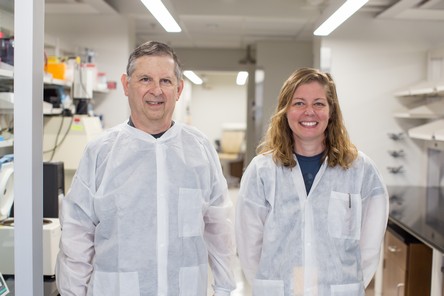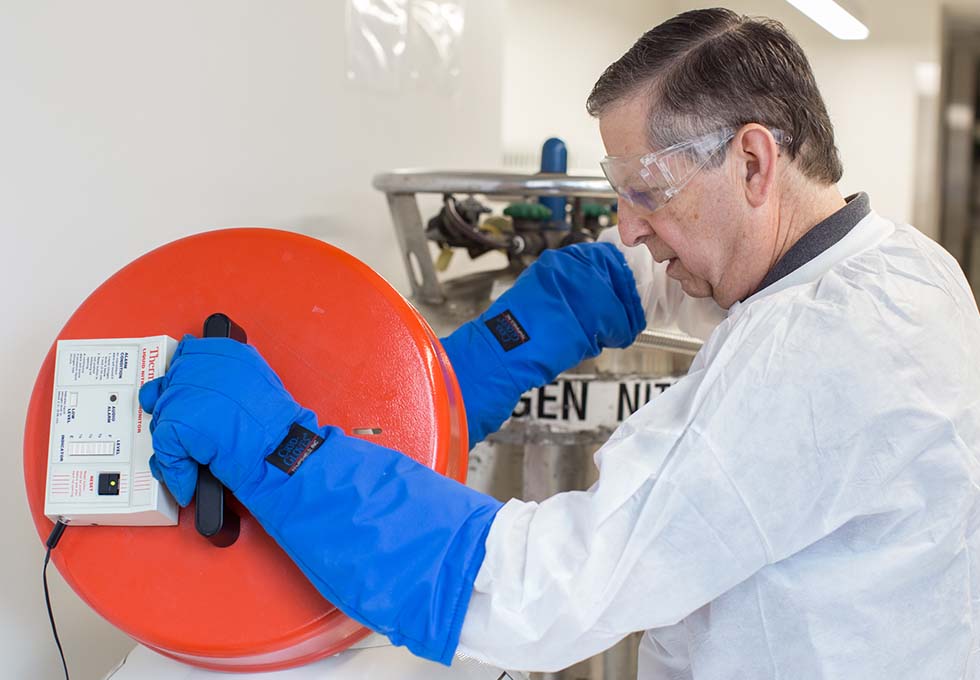The study of cellular and molecular mechanisms of disease
 Dr. Sirica is a Professor Emeritus of Pathology and Distinguished Career Professor at Virginia Commonwealth University. His research program in hepatobiliary pathobiology and the cellular and molecular pathogenesis and experimental therapeutics of cholangiocarcinoma has been supported by continuous NIH R01 grant funding from 1981 to March 31, 2019.
Dr. Sirica is a Professor Emeritus of Pathology and Distinguished Career Professor at Virginia Commonwealth University. His research program in hepatobiliary pathobiology and the cellular and molecular pathogenesis and experimental therapeutics of cholangiocarcinoma has been supported by continuous NIH R01 grant funding from 1981 to March 31, 2019.
Cholangiocarcinoma is a class of highly malignant and most often lethal adenocarcinomas of the biliary tract that are frequently characterized by a prominent desmoplastic stoma. However, the biological significance of the desmoplastic stroma in cholangiocarcinoma is only just beginning to be addressed at the cellular and molecular levels. In an effort to provide new cellular and mechanistic insights into how desmoplastic reaction may be contributing to cholangiocarcinoma progression, Dr. Sirica’s more recent research was focused on utilizing unique orthotopic tumor and complementary organotypic culture models of rat cholangiocarcinoma developed in his laboratory to identify interactive cellular and molecular pathways that may act to modulate the desmoplastic microenvironment and enhance cholangiocarcinoma aggressiveness.
 Another key component of Dr. Sirica’s current research was to identify and preclinically test in vitro and in vivo novel molecular strategies for intrahepatic cholangiocarcinoma therapy based on combinational targeting of tumor stromal and cancer cell signaling pathways linked to cholangiocarcinoma progression and chemotherapeutic resistance. Particular attention was placed on testing targeted agents for their ability to selectively deplete cancer-associated myofibroblasts from the cholangiocarcinoma microenvironment as a potential means of enhancing the therapeutic efficacy of select clinically relevant agents targeting dysregulated growth factor pathways associated with cholangiocarcinoma cell invasive growth and apoptosis resistance.
Another key component of Dr. Sirica’s current research was to identify and preclinically test in vitro and in vivo novel molecular strategies for intrahepatic cholangiocarcinoma therapy based on combinational targeting of tumor stromal and cancer cell signaling pathways linked to cholangiocarcinoma progression and chemotherapeutic resistance. Particular attention was placed on testing targeted agents for their ability to selectively deplete cancer-associated myofibroblasts from the cholangiocarcinoma microenvironment as a potential means of enhancing the therapeutic efficacy of select clinically relevant agents targeting dysregulated growth factor pathways associated with cholangiocarcinoma cell invasive growth and apoptosis resistance.
Hepatobiliary Cancers: Pathobiology and Translational Advances was first held on December 7-10, 2017, at the Virginia Commons Hotel and Conference Center in Glen Allen, Virginia. This conference, organized and chaired by Dr. Sirica, represented the first of its kind three-day single topic conference on this important and timely subject matter held in the USA. The conference was co-sponsored and partially funded by the American Association for the Study of Liver Diseases and The Cholangiocarcinoma Foundation, as well as Virginia Commonwealth University’s Department of Pathology and Massey Cancer Center. In addition, the conference also was supported in part by funding from NIH Grant R13CA216895. Complete details of this conference, including objectives, invited speakers list, scientific program, accepted abstracts, and Progress Report for R13CA216895 can be found at www.livercancerconference.vcu.edu. As detailed in this Progress Report, this conference was highly rated and 100% of the attendees indicated by a show of hands at the event, and/or in their written evaluations that they would like to see this scientific meeting continued. Based on this overwhelming unanimous response, Dr. Sirica, along with Dr. Gregory Gores of the Mayo Clinic and Dr. Lopa Mishra of George Washington University as co-organizers, have now organized a Keystone eSymposium - Hepatobiliary Cancers: Pathobiology and Translational Advances”, held on March 22- 24, 2021.
Details of this first of its kind Keystone Symposium can be foundonline at https://virtual.keystonesymposia.org/ks/live/668/page/5598.
In addition, Dr. Sirica was the Organizer and Chair of a novel FASEB Catalyst Conference titled “Cholangiocarcinoma: Molecular Drivers, Microenvironment, and Precision Medicine”, held as a virtual event on April 7, 202. He continues to publish on cholangiocarcinoma, with 2 reviews appearing in 2021.